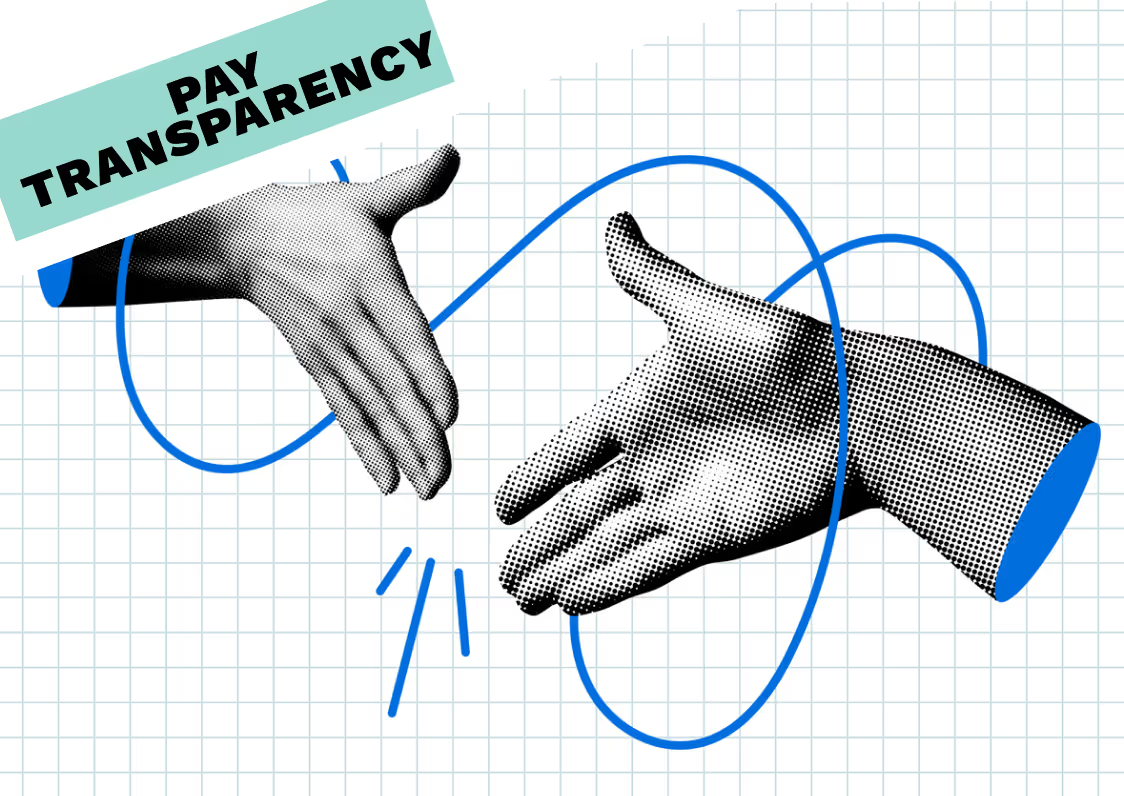Germany is overhauling its pay equity framework to align with the EU Pay Transparency Directive, marking a pivotal shift from its existing Entgelttransparenzgesetz (Pay Transparency Act). With draft legislation expected by Q1 2026, German employers face expanded obligations to eliminate gender pay gaps through rigorous reporting, enhanced employee rights, and systemic pay structure reforms. This guide outlines the critical changes and strategic steps for compliance ahead of the June 2026 implementation deadline.
Legislative Framework and Timeline
Germany's implementation strategy integrates the EU directive into its Entgelttransparenzgesetz (EntgTranspG), updating the 2017 law that has been criticized for limited enforcement. Key milestones include:
- June 7, 2026: EU implementation deadline for all member states.
- January 2026: Anticipated publication of draft amendments to EntgTranspG.
- June 2027: First pay gap reports due for employers with 250+ employees.
- 2031: Initial reporting deadline for organizations with 100–149 employees.
Unlike Poland's minimalist approach, Germany is pursuing "gold-plated" implementation, extending certain requirements to employers with fewer than 100 employees. The Federal Ministry for Family Affairs is coordinating these reforms, emphasizing stricter penalties and proactive pay equity measures to address Germany's persistent gender pay disparities. Germany's 'gold-plated' implementation approach differs significantly from other EU member states, as our country-by-country implementation tracker demonstrates.

Enhanced Transparency Obligations
Recruitment and Salary Disclosure
The draft legislation introduces transformative hiring practices for German employers. Organizations must publish fixed salary ranges in all job postings, including temporary and platform-based roles, providing candidates with clear compensation expectations from the outset. Additionally, inquiries into candidates' prior compensation history will be explicitly prohibited, preventing the perpetuation of historical pay inequities. Employers must also reference any collective bargaining agreements (CBAs) that affect compensation in their vacancy notices, ensuring full transparency about applicable pay frameworks. These new requirements will force organizations to eliminate outdated recruitment approaches that have historically perpetuated pay inequities.
Employee Rights to Pay Data
Under the new framework, employees gain unprecedented access to compensation information within their organizations. Workers will have the right to request gender-disaggregated median pay data for comparable roles, with employers required to respond within 30 days. Employees will also be entitled to access the objective criteria used to determine their compensation, including variable components like bonuses and performance incentives. Importantly, the legislation provides robust protection against retaliation for workers who discuss pay information or file transparency requests. While transparency brings clear benefits for employees, organizations should prepare for both the advantages and challenges of this new open approach to compensation.
Tiered Reporting Requirements
Germany's framework introduces EU-mandated reporting while expanding existing obligations based on employer size:
Employers with 250+ employees must implement annual reporting starting June 2027. These reports must disclose gender pay gaps in base salary, bonuses, and equity compensation, while also including workforce distribution across pay quartiles by gender and age group.
Employers with 150–249 employees
Face triennial reporting requirements beginning in June 2027. These organizations must report median pay gaps and document gender disparities in promotion rates throughout the organization.
Employers with 100–149 employees
Will begin triennial reporting from June 2031. Their reports must provide average pay gaps and include justifications for any disparities exceeding the 5% threshold.
All reports must be submitted to the Federal Anti-Discrimination Agency and shared with works councils (Betriebsräte), ensuring both regulatory oversight and employee representation in the transparency process.
Pay Gap Remediation Protocol
Germany adopts the EU's 5% threshold for unjustified pay gaps, triggering what may become Europe's most stringent correction process. When gaps exceeding this threshold are identified, employers must conduct mandatory joint pay assessments with works councils within three months. These assessments must comprehensively analyze hiring biases, variable pay allocation patterns, and career progression metrics to identify the root causes of disparities.
Following assessment, organizations must develop corrective action plans with measurable targets to eliminate disparities within 12 months. Progress must be documented through quarterly reports submitted to works councils and regulatory bodies. Non-compliance carries significant financial penalties, with fines up to €500,000 for large employers with systemic violations, while SMEs face penalties of up to 2% of annual turnover for repeat offenses.
Integration with Existing Systems
Germany harmonizes the directive with two established mechanisms within its employment framework:
The Entgeltgleichheitsprüfung (Pay Equity Audits), mandatory since 2017 for employers with 500+ employees, will be expanded to include intersectional analysis of pay gaps by migration background and disability status, providing a more comprehensive view of workplace inequities. Understanding the distinction between pay equity and gender pay gaps is crucial for properly implementing these expanded reporting requirements.
Through Betriebsvereinbarungen (Works Agreements), works councils will gain enhanced authority to approve pay structures and audit methodologies. Employers must negotiate transparency clauses in collective agreements by 2027, formalizing the role of employee representatives in ensuring equitable compensation practices.
Enforcement and Social Dialogue
The Federal Anti-Discrimination Agency will receive expanded powers to enforce the new requirements. The agency will be authorized to conduct unannounced audits of pay records, require third-party certification of pay gap calculations, and publish non-compliant employers on a public register, creating both regulatory and reputational incentives for compliance.
Works councils will play a pivotal role in the enforcement ecosystem by approving job classification systems, monitoring the implementation of corrective action plans, and initiating pay equity lawsuits on behalf of employees when necessary. This collaborative approach leverages Germany's strong tradition of social partnership to advance pay equity goals.
Strategic Preparation Steps

Pay Structure Alignment
Organizations should adopt the ERA (Entgeltrahmenabkommen) job classification system to ensure gender-neutral role evaluations across their workforce. Conducting preemptive audits using the government's Logib-D pay gap analysis tool will help identify potential issues before reporting deadlines arrive.
Recruitment Process Updates
Implementing AI-driven salary benchmarking tools will help organizations set compliant pay ranges consistently across all positions. HR teams should receive comprehensive training on bias-free interview techniques and CBA compliance to ensure fair hiring practices.
Data Infrastructure Development
Companies need to upgrade their HRIS systems to track hourly versus annualized compensation by gender, enabling accurate gap analysis. Multinational corporations should develop bilingual (German/English) reporting templates to ensure consistency across borders.
Stakeholder Engagement
Proactively negotiating transparency clauses with works councils and unions will facilitate smoother implementation. Joint training sessions on pay equity metrics and EU reporting standards will build shared understanding and commitment to equity goals.
Contextualizing Germany's Pay Equity Landscape
Germany's 2024 gender pay gap of 18% (unadjusted) remains one of Europe's highest, driven by significant leadership disparities and sectoral inequities. Women hold just 12% of executive board seats in DAX companies, while female finance professionals earn 23% less than their male counterparts on average.
The directive's focus on variable pay transparency directly targets these persistent inequities by requiring disclosure of stock option allocations and bonus criteria that have historically favored male employees, particularly in senior positions.
Conclusion
Germany's implementation of the EU Pay Transparency Directive represents a watershed moment for workplace equity. By combining stringent reporting requirements with enhanced social partner involvement, Germany aims to close its persistent gender pay gap while fostering fairer compensation practices across all sectors. Compensation professionals must prioritize pay structure audits, data system upgrades, and proactive collaboration with works councils to prepare for these sweeping changes.
Organizations that view transparency as a strategic advantage rather than merely a compliance obligation will not only ensure regulatory alignment but also strengthen their employer brand in Germany's competitive talent market. With draft legislation imminent, the time for preparation is now—those who act decisively will lead the charge toward a more equitable future.
.avif)

![How Countries Are Implementing the EU Pay Transparency Directive [Updated December 2025]](https://cdn.prod.website-files.com/67d7e1e2f12d2942bb8d0309/6800da19bf0ad5c3d89c6d56_67e2c2cbef618bc98559ce0c_679b9fd8dac8fc3762b7e816_General%252520Topic.avif)



